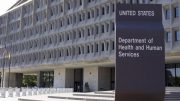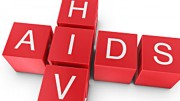 Study results released today by the HIV Prevention Trials Network (HPTN) show disturbing rates of new HIV infections occurring among Black gay and bisexual men in the U.S. (also known as men who have sex with men, or MSM), particularly young Black MSM. The HPTN 061 study showed that the overall rate of new HIV infection among Black MSM in this study was 2.8% per year, a rate that is nearly 50% higher than in white MSM in the U.S. Even more alarming, HPTN 061 found that young Black MSM—those 30 years of age and younger—acquired HIV infection at a rate of 5.9% per year, three times the rate among U.S. white MSM. The overall infection rate among Black MSM in this U.S study is comparable to the rate seen in the general populations of countries in sub-Saharan Africa hardest hit by the HIV epidemic. HPTN 061 was a large multi-site study of HIV and Black MSM conducted in six U.S. cities, and the first to determine the rate of new HIV infection among such a large prospective cohort of U.S. Black MSM (referred to as HIV incidence).
Study results released today by the HIV Prevention Trials Network (HPTN) show disturbing rates of new HIV infections occurring among Black gay and bisexual men in the U.S. (also known as men who have sex with men, or MSM), particularly young Black MSM. The HPTN 061 study showed that the overall rate of new HIV infection among Black MSM in this study was 2.8% per year, a rate that is nearly 50% higher than in white MSM in the U.S. Even more alarming, HPTN 061 found that young Black MSM—those 30 years of age and younger—acquired HIV infection at a rate of 5.9% per year, three times the rate among U.S. white MSM. The overall infection rate among Black MSM in this U.S study is comparable to the rate seen in the general populations of countries in sub-Saharan Africa hardest hit by the HIV epidemic. HPTN 061 was a large multi-site study of HIV and Black MSM conducted in six U.S. cities, and the first to determine the rate of new HIV infection among such a large prospective cohort of U.S. Black MSM (referred to as HIV incidence).
The Fenway Institute worked with the Multicultural AIDS Coalition to coordinate the Boston arm of HPTN 061, dubbed Project S.O.S. (Saving OurSelves), which enrolled 237 study participants over two years. Kenneth Mayer, MD, Medical Research Director at Fenway served as the Protocol Co-Chair for the multi-site study and was the Fenway site’s Principal Investigator and Ben Perkins, MDiV, served as the study’s Project Director at The Fenway Institute.
“The HPTN 061 study results are part of an HIV prevention narrative that consistently continues to show that Black MSM are exceedingly vulnerable. The truth is that these troubling HIV infection rates are associated with underlying issues of stigma, discrimination, joblessness, homelessness, incarceration, and trauma. Any attempts to address the HIV problem will, therefore, by necessity, need to tackle these issues in order to make a real and lasting impact in the epidemic,” said Perkins.
“These study results show that in proportion to their numbers, Black MSM are bearing the brunt of the HIV epidemic here in the United States, even in comparison to other groups of gay and bisexual men,” said Mayer. “We found that the men had many unmet medical and social service needs. There is an urgent need to focus resources to address these high rates of HIV infection as part of the larger national strategy to combat the AIDS epidemic.”
The HIV incidence results from HPTN 061, presented today at the XIX International AIDS Conference in Washington, D.C. are among the first findings to come out of the study. Other early analyses show that HIV infection in this study population was associated with very high rates of untreated sexually transmitted infections and with poverty. Of the self-reported HIV-negative or unknown HIV status study participants who agreed to be tested at time of enrollment, 12% were HIV-positive. This finding suggests low rates of HIV testing or delays in testing among Black MSM. All HIV-infected study participants were referred for HIV care and treatment services. During the study, all participants were offered the chance to work with “peer health navigators” to provide support and to assist them with access to needed services. In addition, they were provided with condoms, testing and referral treatment of sexually transmitted infections, risk reduction counseling and other standard HIV prevention services.
The success of the HPTN 061 in recruiting and retaining Black MSM in a year-long study, including 97% uptake of HIV testing, answered a primary objective of the study, and paves the way for the conduct of future HIV prevention research.
Commenting on the findings, HPTN 061 Study Co-Chair Darrell Wheeler, PhD, MPH, Dean of the School of Social Work at Loyola University said, “We have known that Black MSM are affected by HIV at disproportionately higher rates when compared to other MSM in the U.S., but the HPTN 061 HIV incidence rates were extremely high. They make it very clear that we must urgently find and implement ways to stem the spread of HIV among Black gay men in this country, and critically among young Black gay men.”
“The HPTN 061 study findings are a sobering wake-up call,” said Wafaa El-Sadr, MD, MPH Co-Principal Investigator for the HPTN. “These results, and others to be garnered from further analysis of the study, highlight the enormity of the challenges ahead and offer important insights into how to design research studies and programs for prevention of HIV among Black MSM.”
Further analysis of data from the study is ongoing to assess how HIV risk among Black MSM might be affected by childhood experiences, social and sexual networks, discrimination, homophobia, incarceration and barriers to health care. These findings will help inform future research and prevention efforts.
The HPTN 061 study enrolled a total of 1,553 MSM in six U.S. cities; Atlanta, GA, Boston, MA, New York, NY, Los Angeles, CA, San Francisco, CA, and Washington, D.C. and was conducted between 2009-2011. The study is funded by the National Institute of Allergy and Infectious Diseases (NIAID), the National Institute on Drug Abuse (NIDA) and the National Institute of Mental Health (NIMH).
The Multicultural AIDS Coalition (MAC) is the oldest Minority AIDS Service Organization in New England. Since 1988, the MAC has provided the Boston Metropolitan Area with a range of programs to fight HIV & AIDS, including prevention & education programs, advocacy, strategic planning, outreach to individuals at high-risk of HIV infection and programs to bridge service gaps for underserved communities.
For more than forty years, Fenway Health has been working to make life healthier for the people in our neighborhood, the LGBT community, people living with HIV/AIDS and the broader population. The Fenway Institute at Fenway Health is an interdisciplinary center for research, training, education and policy development focusing on national and international health issues. The Fenway Institute is a member of the HIV Prevention Trials Network.
The HIV Prevention Trials Network (HPTN) is a worldwide collaborative clinical trials network that develops and tests the safety and efficacy of primarily non-vaccine interventions designed to prevent the acquisition and transmission of HIV. The HPTN research agenda is focused primarily on reduction of HIV transmission and acquisition through the use of ART for HIV-infected persons and ARVs as pre-exposure prophylaxis (PrEP) for HIV-negative persons for HIV prevention, reducing the impact of behavioral and biologic co-factors that increase risk of infection, treatment of substance use (particularly injection drug use), behavioral risk reduction interventions, and structural interventions. The highest priority of the HPTN is to develop and implement combination prevention strategies that demonstrate a significant and measurable reduction in HIV incidence in a variety of populations and epidemic settings.







